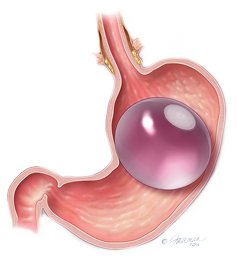Dr. Provost specializes in laparoscopic gastric bypass, laparoscopic gastric sleeve, and revisional surgery to correct complications and failures in previous weight loss surgery operations, including Lap-Band surgery. In addition to providing surgical solutions to his patients, Dr. Provost also offers support groups at his practice. Support Groups give patients critical support both before and after they have had weight loss surgery. They represent his ongoing dedication to providing his patients with comprehensive weight loss solutions.
Dr. David Provost, MD has been one of the foremost bariatric surgeons in Texas for more than 20 years. In that time, he has helped thousands of patients’ live longer, happier lives. Dr. Provost is committed to helping patients looking for weight loss solutions, and has recently relocated to Temple, Texas to lead the Bariatric Program at Baylor Scott & White, Scott & White Memorial Hospital. Though famous throughout Texas, Dr. Provost is a nationally recognized physician and has trained hundreds of surgeons in the U.S. and abroad.
He is a graduate of UT Southwestern Medical School in Dallas and remained there to conduct his residency at Parkland Memorial Hospital, where he later became an assistant professor at UTSW in 1995. In 2008, he moved his practice to Denton, Texas, and in 2016 he relocated to Scott & White Clinic in Temple, Texas. Dr. Provost serves on the Executive Council of the American Society for Metabolic and Bariatric Surgery and previously served as president of the ASMBS Foundation. He also serves on the American College of Surgery Committee for Metabolic and Bariatric Surgery.

Adolescent Bariatric Surgery
Childhood obesity is a significant problem for today’s youth, with the Centers for Disease Control and Prevention (CDC) reporting that numbers have more than doubled in children and quadrupled in adolescents in the past 30 years.
Read More
Monthly Support Group Meetings
Dr. Provost hosts monthly support groups to ensure patients have lifelong success after weight loss surgery. Get the details, and learn about the philosophy of Attitudinal Healing that guides group discussions.
Read MoreLatest from our blog

John Di Maggio is on His Third Wardrobe
In 2012, John Di Maggio had reached a peak weight of 505 pounds. He had diabetes mellitus, requiring treatment with three different anti-diabetic medicines. He ... Continue Reading →

Lap-Band Procedure — Benefits for Years to Come
A recent study looked at the safety and effectiveness of the Lap Band, over five years. This was a multi-center clinical trial, and focused on ... Continue Reading →

Weight Loss Can Reverse Heart Damage
You’ve likely heard that obesity is linked to heart disease. But did you know that losing weight can potentially reverse damage to your heart caused by obesity? ... Continue Reading →

Happy New Year from Provost Bariatrics!
Did you make any resolutions? Studies show that about 150 million Americans make a new year’s resolution. Only 8% of them end up ‘succeeding’ in this effort, ... Continue Reading →

Knees Can Be Saved
Do you experience knee pain? If so, you’re far from alone. Knee pain is so common that it’s responsible for 1/3 of all muscle and ... Continue Reading →









 D Magazine named Dr. Provost one of the best bariatric surgeons in Dallas in 2005, 2006, 2007, 2008, 2009 and 2010!
D Magazine named Dr. Provost one of the best bariatric surgeons in Dallas in 2005, 2006, 2007, 2008, 2009 and 2010! Texas Monthly named Dr. Provost a Texas Super Doctor in 2008! Dr. Provost provides Lap-Band, gastric bypass, gastric sleeve and revision surgery for patients in Temple, Texas and surrounding areas.
Texas Monthly named Dr. Provost a Texas Super Doctor in 2008! Dr. Provost provides Lap-Band, gastric bypass, gastric sleeve and revision surgery for patients in Temple, Texas and surrounding areas.